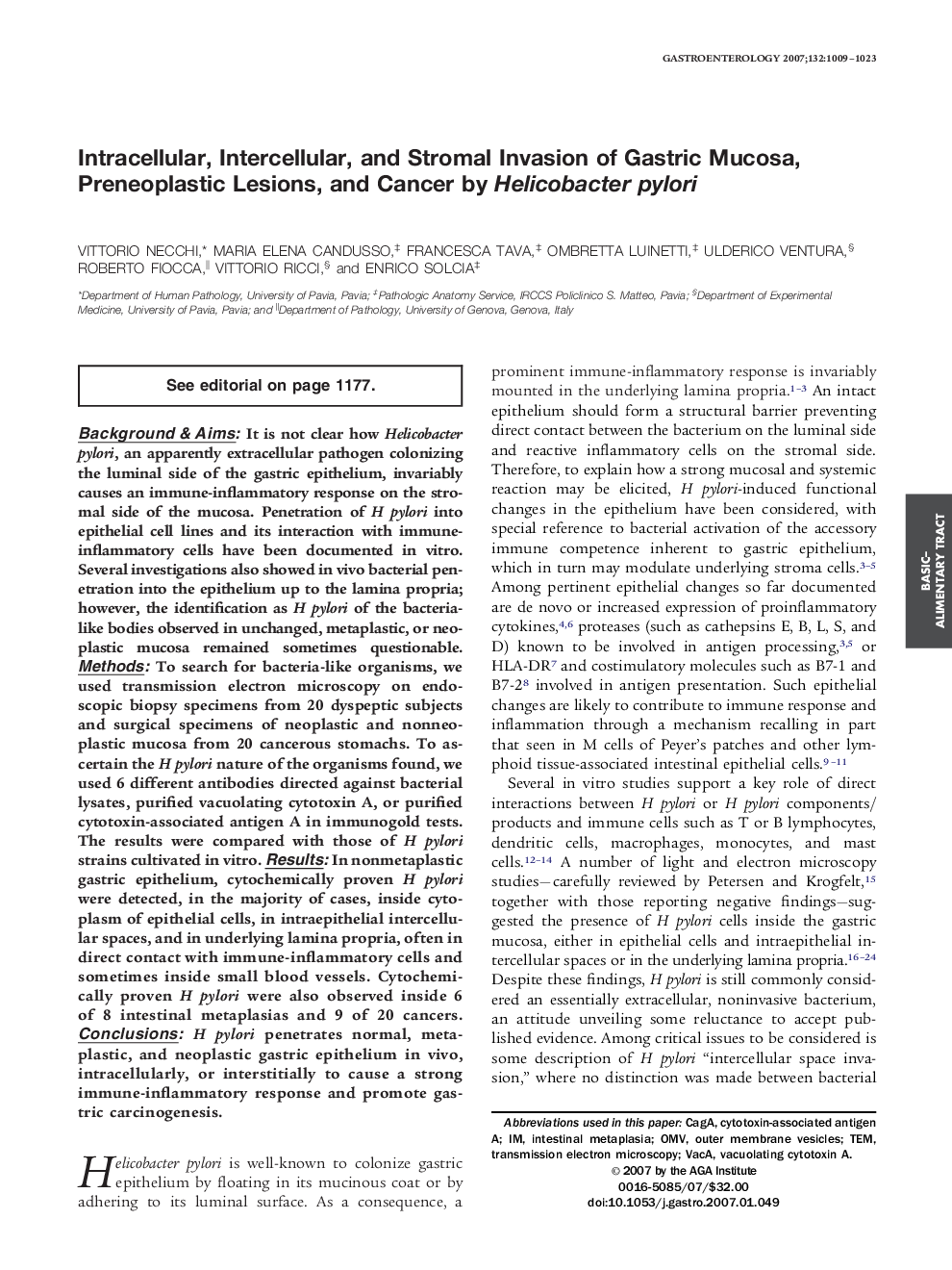| کد مقاله | کد نشریه | سال انتشار | مقاله انگلیسی | نسخه تمام متن |
|---|---|---|---|---|
| 3299389 | 1209928 | 2007 | 15 صفحه PDF | دانلود رایگان |
عنوان انگلیسی مقاله ISI
Intracellular, Intercellular, and Stromal Invasion of Gastric Mucosa, Preneoplastic Lesions, and Cancer by Helicobacter pylori
دانلود مقاله + سفارش ترجمه
دانلود مقاله ISI انگلیسی
رایگان برای ایرانیان
کلمات کلیدی
موضوعات مرتبط
علوم پزشکی و سلامت
پزشکی و دندانپزشکی
بیماریهای گوارشی
پیش نمایش صفحه اول مقاله

چکیده انگلیسی
Background & Aims: It is not clear how Helicobacter pylori, an apparently extracellular pathogen colonizing the luminal side of the gastric epithelium, invariably causes an immune-inflammatory response on the stromal side of the mucosa. Penetration of H pylori into epithelial cell lines and its interaction with immune-inflammatory cells have been documented in vitro. Several investigations also showed in vivo bacterial penetration into the epithelium up to the lamina propria; however, the identification as H pylori of the bacteria-like bodies observed in unchanged, metaplastic, or neoplastic mucosa remained sometimes questionable. Methods: To search for bacteria-like organisms, we used transmission electron microscopy on endoscopic biopsy specimens from 20 dyspeptic subjects and surgical specimens of neoplastic and nonneoplastic mucosa from 20 cancerous stomachs. To ascertain the H pylori nature of the organisms found, we used 6 different antibodies directed against bacterial lysates, purified vacuolating cytotoxin A, or purified cytotoxin-associated antigen A in immunogold tests. The results were compared with those of H pylori strains cultivated in vitro. Results: In nonmetaplastic gastric epithelium, cytochemically proven H pylori were detected, in the majority of cases, inside cytoplasm of epithelial cells, in intraepithelial intercellular spaces, and in underlying lamina propria, often in direct contact with immune-inflammatory cells and sometimes inside small blood vessels. Cytochemically proven H pylori were also observed inside 6 of 8 intestinal metaplasias and 9 of 20 cancers. Conclusions: H pylori penetrates normal, metaplastic, and neoplastic gastric epithelium in vivo, intracellularly, or interstitially to cause a strong immune-inflammatory response and promote gastric carcinogenesis.
ناشر
Database: Elsevier - ScienceDirect (ساینس دایرکت)
Journal: Gastroenterology - Volume 132, Issue 3, March 2007, Pages 1009-1023
Journal: Gastroenterology - Volume 132, Issue 3, March 2007, Pages 1009-1023
نویسندگان
Vittorio Necchi, Maria Elena Candusso, Francesca Tava, Ombretta Luinetti, Ulderico Ventura, Roberto Fiocca, Vittorio Ricci, Enrico Solcia,